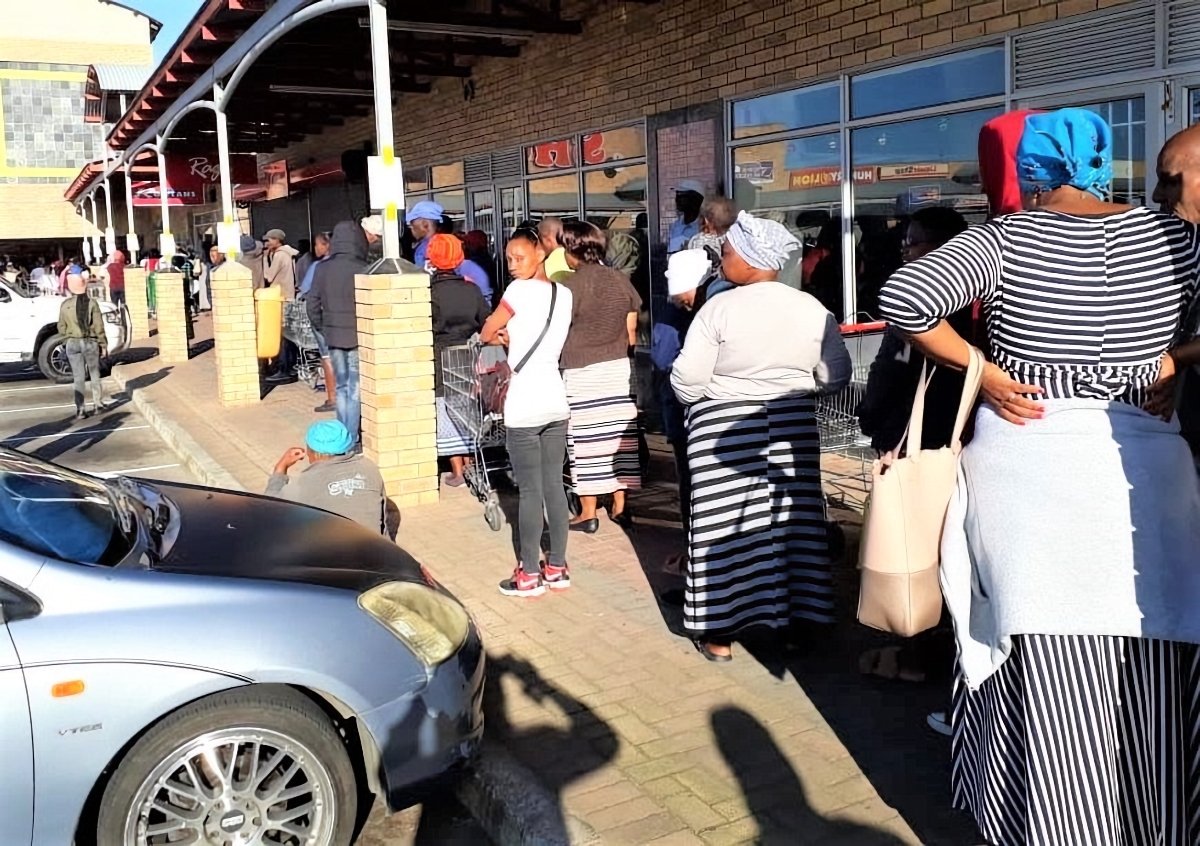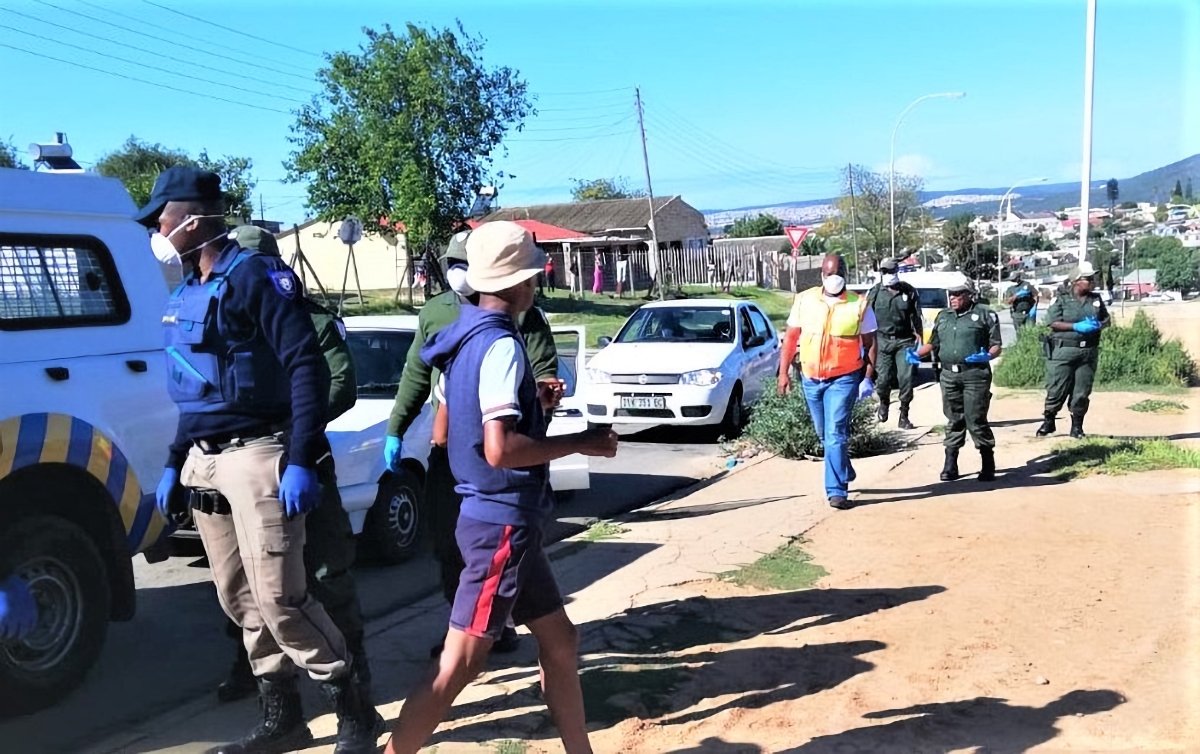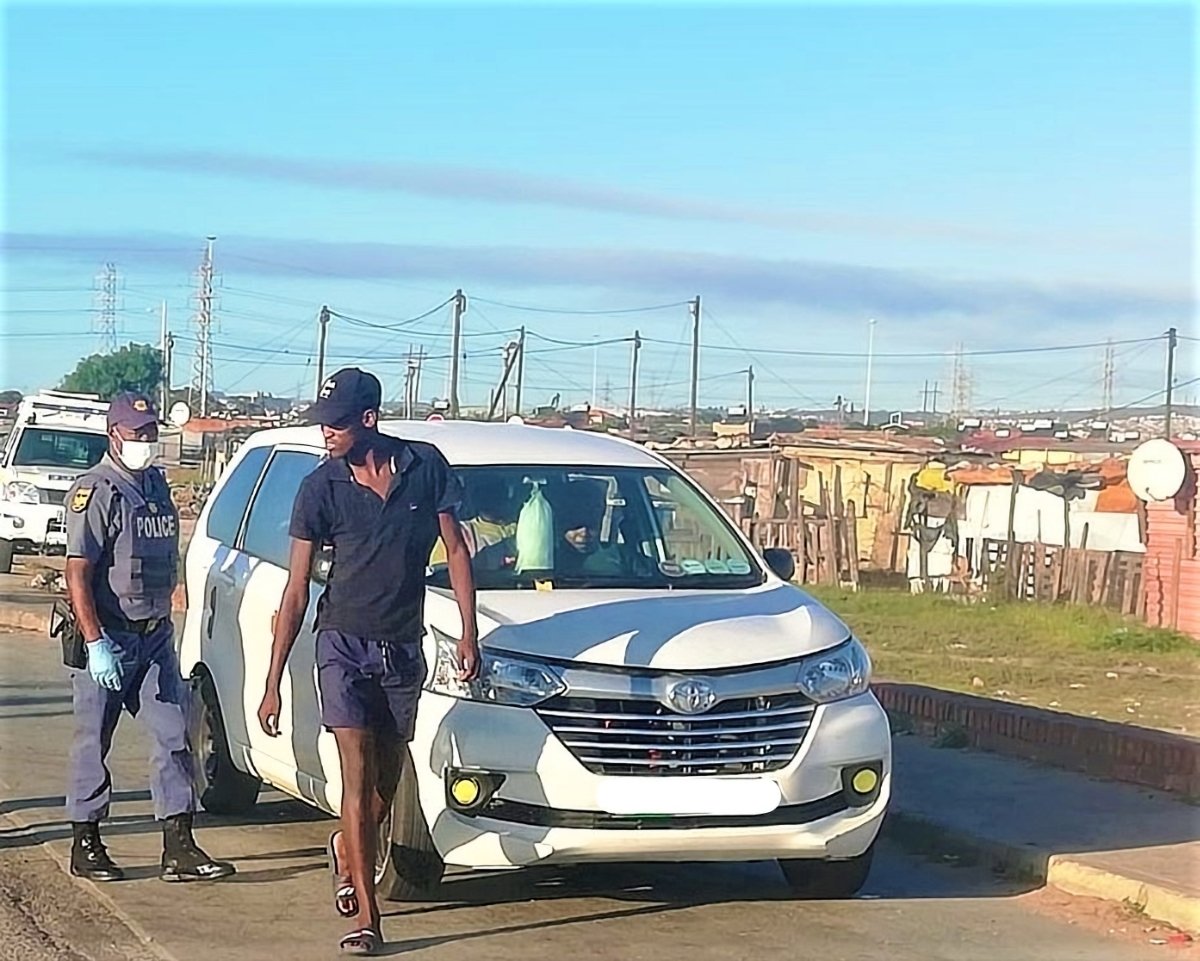The Covid-19 lockdown in South Africa will fuel an upsurge in crime in a country that’s already one of the world’s most lawless
Domestic violence, murders and sex crimes in South Africa are already among the highest anywhere, but are expected to soar during the three weeks millions are confined to their shacks in packed, impoverished townships.
Unlike in other countries, the three-week lockdown enforced across South Africa last Friday also came with a strict alcohol ban. The government hopes this will help dampen the spike of lawlessness many fear will come as an unwelcome consequence of the measures.
The early signs are not promising. In a horrific case this week, a mother and four other members of her family, including a five-month-old, were burned alive inside their shack in the Eastern Cape – apparently after a domestic dispute with her boyfriend.

South Africa’s overcrowded, impoverished townships are crime-ridden at the best of times. The country’s two biggest, Soweto in Johannesburg and Khayelitsha on the Cape Flats east of Cape Town, are home to 1.2 million and 0.5 million people respectively, crowded together in often small, makeshift homes. Many of the residents are out of work or are casual workers, now confined to home with no income or way of supporting their families – adding to the country’s already high official unemployment rate of 29%.
Experts fear that there will be an upsurge in domestic abuse cases as family members – sometimes as many as 12 – are forced to squeeze together, often in one- or two-roomed shacks made of corrugated iron. They share outdoor latrines and there is often only one outside tap to serve the needs of dozens of men, women and children.
Health officials are deeply concerned that if the coronavirus does take hold in such settlements, the disease will spread like wildfire.
As of Wednesday, South Africa had the highest number of infections in Africa, with 1,380 confirmed cases and five deaths.

The country is already afflicted with ongoing issues such as high levels of crime, a weak economy, and an unreliable power supply. Last week, Moody’s Investors Service downgraded the country’s sovereign debt to “junk status.”
The prospect of hundreds and thousands of gravely ill people pouring into a public health system that can hardly cope in normal times is the disaster that the government is most scared of.

With many township residents choosing to ignore the edicts stay at home, the government has deployed thousands of troops throughout the country in a bid to enforce the orders, and there’s been growing outrage at their use of excessive, heavy-handed tactics to get compliance.
Soldiers and police have used rubber bullets and stun grenades to disperse large crowds gathered outside shopping malls, and posts have emerged across social media showing residents being assaulted and manhandled by troops and officers.
Security sources have confirmed that they are braced for a spike in gender-based violence, which is already at alarming levels. Reliable police statistics on domestic violence in the country are limited, but the latest crime figures reveal that there are up to 114 rapes and 57 murders every day. Surveys have also found that about 40% of South African men have hit their partners and that at least one in four had raped a woman.
The head of the South African Institute for Security Studies Justice and Violence Prevention, Gareth Newham, warned that it was inevitable the country would likely follow the trend in an upsurge of domestic violence cases across the world.
“In all the other countries we have seen a sharp increase in such cases during the lockdown period. We assume that South Africa will have a similar trend. Several factors, including the abuser now being at home and not leaving, make it difficult for the victim to get help,” he said.
“Mitigating factors are, however, the ban on the sale of alcohol and the fact that in the informal areas, the residences are close together, making an abuser less inclined to act.”
Newham said that studies found a link between alcohol abuse and domestic violence.
A non-profit organization, Families South Africa (Famsa), has placed support staff on standby countrywide. The organisation estimates that one in every three South African women are beaten by their partners, and that almost 400 are killed by their partners each year.
Famsa’s executive director Naku Masuku told RT that it was globally accepted that South Africa has the highest rate of femicide on the African continent and the highest incidence of rape worldwide.
"We are prepared for this,” she added. “If there is a spike, we have everyone on standby.”
Karen Hollely, the co-founder of the Child Witness Institute, a South African non-profit organization, said that she too anticipated increases in domestic violence and child abuse crimes.
“It is highly likely that there will be an increase in sexual attacks as well as domestic violence cases. Stress factors such as job uncertainty, staying in confinement for weeks and not knowing where your next meal comes from all play a role in this.”
The next few weeks of the Covid-19 crisis may prove to be a defining time for a country – and a continent – grappling with myriad problems.
The statements, views and opinions expressed in this column are solely those of the author and do not necessarily represent those of RT.















